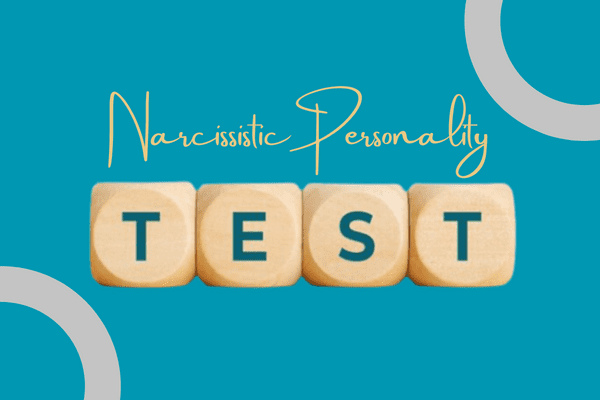When Extreme Self-belief Crosses the Line, It’s Everyone’s Problem
Narcissistic personality disorder is a medically recognised condition, listed in the fifth edition of the Diagnostic and Statistical Manual of Mental Disorders, AKA DSM-5. In fact, people working for narcissistic bosses often indulge them because they’re successful and inspiring, and they like being part of their success story. Or, they do until the narcissism becomes a problem for the business.
How Do You Know When Someone is A Narcissist?
People use the word narcissism a lot in our culture. Usually, we say it about someone who seems extremely vain or self-obsessed. But when psychologists use the term, narcissism doesn’t mean self-love – at least, not self-love of a genuine sort. Now according to the experts, it’s more accurate to say people with narcissistic personality disorder (NPD) have an idealised, unrealistic image of themselves. Moreover, say the experts, they’re in love with this inflated self-image precisely because it allows them to avoid deep feelings of insecurity.
What Are the 12 Traits of a Narcissist?

- Superiority and entitlement
- Exaggerated need for attention and validation
- Lack of responsibility – blaming and deflection
- Few boundaries
- Lack of empathy
- Emotional reasoning about their behaviour, not logic
- Splitting – everything is either ‘good’ or bad’
- Fear of being found out and lack of trust
- Anxiety
- Conceal feelings of shame
- Can’t be open to vulnerability
- Unable to work in a team with others
What Does A Narcissistic Person Act Like?
Note that narcissistic personality disorder involves a person showing consistently self-centred, arrogant thinking and behaviour, a lack of empathy and consideration for other people, and an excessive need for admiration. Others often describe narcissistic people as cocky, manipulative, selfish, patronising, and demanding. This way of thinking and behaving surfaces in every area of the narcissist’s life, from work and friendships to family and love relationships.
Sticky Learning ® is 7 times more effective than 1-day training courses. Plus, you will get a Chain of Evidence proving your Return on Investment. Discover soft skills training that changes behaviours long term.

What Does Narcissism Look Like In A Relationship?
Narcissists are preoccupied with their own feelings and needs, seem cold and detached when you need emotional support, and have difficulty making a sincere apology and accepting responsibility for any harm they cause.
What Are Examples of Narcissistic Behaviour?
- Exploiting others without guilt or shame.
- Living in a fantasy world that supports their delusions of grandeur.
- Having a sense of entitlement.
- Frequently demeaning, intimidating, bullying or belittling others.


>> Mental Health Coaching Cards <<
>> Access on Amazon <<
How Does A Narcissist Cope?
Narcissists use a variety of dysfunctional coping mechanisms to feed their insatiable hunger to control other people’s emotions. Watch out for these common tactics:
- Love-bombing: Overwhelming someone with friendship and affection so they earn your trust and they’re in control.
- Projection: The narcissist fails to acknowledge their own flaws. Instead, typically they project their inadequacies onto you, painfully and cruelly.
- Deflection: They continually talk in circles, so you forget what you were originally talking about. They keep changing the subject to escape having to accept accountability.
- Distortion: They distort reality to suit their perspective with complete confidence, convincing others they are spouting facts.
- Gaslighting: Faced with a genuine concern, they deny it’s happening and convince the other person they’re imagining it.
- Triangulation: Convincing or imposing their opinion or perspective on another person to gain their support, and harm a third person.
- Finally, splitting: Seeing everything as “black” or “white,” with no room for shades of grey.
Is a Micromanaging Boss a Narcissist?
Well, experts say maybe, but not necessarily. Also, some people micromanage because it makes them feel important. There could be an element of narcissism, or there could be other things going on. Or maybe the people they’re managing need authoritative leadership.
Well, what can you do if you have a narcissistic boss?
- Broaden your network.
- Keep interactions short and sweet.
- Avoid their triggers.
- Appeal to their goals.
- Practice self-care.
- Get another job.
We all accept you need self-belief to do well in business. In fact, some experts go further and believe people who others might see as having exaggerated opinions of their abilities, are mentally tougher, less stressed, and less at risk of anxiety and depression. But if you cross the line and develop a personality disorder, then it’s a problem.
How Can You Tell When Narcissism Is a Personality Disorder?
As we said earlier, people often tolerate narcissistic bosses because they’re successful and inspiring, and they like being part of their success. Well, there’s a big difference between narcissism and NPD.

People with narcissistic personality disorder have trouble handling anything they view as critical. More specifically, they can:
- Become impatient or angry when they don’t receive special recognition or treatment.
- Have major problems interacting with others and easily feel slighted.
- React with rage or contempt and try to belittle other people to make themselves appear superior.
- Have difficulty managing their emotions and behaviour.
- Experience major problems dealing with stress and adapting to change.
- Withdraw from, or avoid, situations in which they might fail.
- Feel depressed and moody because they fall short of perfection.
- Have secret feelings of insecurity, shame, humiliation, and fear of being exposed as a failure.
What are the Causes of Narcissistic Personality Disorder?

The exact cause of narcissism isn’t known, but some experts think an unhealthy early parent-child relationship is an important factor. Moreover, overprotective or neglectful parenting may have an impact on children who are born with a tendency to develop the disorder. Additionally, the Mayo Clinic reckons narcissistic personality disorder may be linked to:
- Environment — parent-child relationships with too much adoration or too much criticism, that don’t match the child’s actual experiences and achievements.
- Genetics — inherited characteristics, such as certain personality traits.
- Neurobiology — the connection between the brain and behaviour and thinking.
Also, Medcraveonline.com says our place in order in our family counts for a lot. First-born children show more chances of acquiring narcissistic personality traits than second-born children. It’s an outcome which supports the “substantial role of nurture.”
Three-quarters of People with NPD are Men. It’s Down to the Way Boys are Brought Up.
A University of Buffalo study suggests that socialisation plays a role in the development of narcissism. Specifically, boys are often praised for their assertiveness and desire for power, while these same traits are discouraged in girls.
Quoting the University of Buffalo, female narcissists tend to be more manipulative socially and can be just as vindictive as male narcissists. Stereotypical female narcissists tend to play the victim, be overly jealous and competitive, superficial, and overbearing. However, as women become more equal in the workplace and their attitudes and conduct mirror men’s, that’s changing. Clearly, narcissistic behaviour doesn’t really differentiate between genders.
What Are the 9 Criteria for Narcissistic Personality Disorder?
The American medical health website eMedicine Health goes into this in detail. And these nine traits are detailed below:

#1: Grandiosity:
- An exaggerated sense of self-importance.
- Feeling superior to others and that you deserve special treatment.
- Feelings are often accompanied by fantasies of unlimited success, brilliance, power, and attractiveness.
#2: Excessive Need for Admiration:
- Must be the centre of attention.
- Often monopolise conversations.
- Feel slighted, mistreated, depleted, and enraged when ignored.
#3: Superficial and Exploitative Relationships:
- Relationships are based on surface attributes, not the unique qualities of others.
- People are valued only to the extent they are viewed as beneficial.
#4: Lack of Empathy:
- Severely limited in or lacking the ability to care about the emotional needs or experiences of others, even loved ones.
#5: Identity Disturbance:
- Sense of self is highly superficial, extremely rigid, and often fragile.
- Self-stability depends on maintaining the view that one is exceptional.
- A grandiose sense of self is easily threatened.
- Retreat from or deny realities that challenge their grandiosity.
#6: Difficulty With Attachment and Dependency:
- Relies on feedback from the environment.
- Relationships only exist to shore up a positive self-image.
- Interactions are superficial.
- Intimacy is avoided.
#7: Chronic Feelings of Emptiness and Boredom:
- When they’re not getting attention and praise, narcissists feel empty, bored, depressed, or restless.
#8: Vulnerability to Life Transitions:
- Difficulty maintaining reality-based personal and professional goals over time.
- Compromises required by work and relationships may feel unbearable.
- Young adults may have a “failure to launch.”
#9: Suicidal Ideations:
- Narcissistic personality disorder is a significant risk factor for suicide and suicidal attempts.
What Are The Different Types of Narcissistic Personality Disorder (DSM-5)?

So there are 3 different narcissistic personality disorder types:
- Overt narcissism: Grandiose, stereotypically loud.
- Malignant narcissism: A combination of narcissistic personality disorder and antisocial personality disorder.
- Covert narcissism: More fragile, self-effacing, overly aware of others, and taking different forms.
1. Overt Narcissists
Now overt narcissism is often seen in a negative light, but the fact is, grandiose narcissistic personalities are typically charming and well-liked. Also, there are two categories of grandiose narcissism, adaptive and maladaptive.
- Adaptive narcissism causes people to build up their self-confidence, to protect themselves. They’re natural leaders and are often drawn to careers that offer positions in leadership. They crave authority and prestige.
- Maladaptive narcissism means someone has naturally high self-esteem and believes they’re entitled to take advantage of other people. This causes them to try to control or manipulate those around them. They may become angry or aggressive when someone disagrees with them or tries to set boundaries.
2. Malignant Narcissists:
Now these people have a combination of internal fragility, aggression, and a general suspicion of those around them. Moreover, malignant narcissists are manipulative, lack empathy for others, and will do what they must to get what they want.
3. Covert Narcissists:
These also fall into different types:
‘#1- Pure’ covert narcissists:
Firstly, ‘pure’ covert narcissists are often in helping professions such as healthcare, teaching, or social work. While their intentions may seem pure, they are motivated by a need for validation and appreciation. Also, they often feel empty and worthless unless they are doing something to help others.
Note, ‘pure’ covert narcissists may direct their anger inward by becoming self-deprecating or participating in passive-aggressive behaviour. Some individuals may also be better at taking revenge because they keep their true feelings hidden by suppressing them.
Now the other kinds of covert narcissists you should know about are:
#2- Communal narcissists:
So these are extremely focused on a specific cause. They are fixated on their public image and want all the credit. They create conflict at public events, look down upon others and seek validation for their good deeds.
#3- Antagonistic narcissists:
These are manipulative and aggressive. Basically, they often use others to get what they want and have no problem exploiting people for their own gain. Furthermore, they’re highly competitive and they always need to be the centre of attention. Also, antagonistic narcissists can be very destructive, both to themselves and to those around them.
#4- Seductive narcissists:
Now unlike the other types of covert narcissists we’ve discussed, this kind manipulates you by making you feel good about yourself. At first, they will appear to admire or even idealise you, but their goal is to make you feel the same way about them so they can use you. However, next time your boss is nice to you, don’t get over suspicious and think they’re a seductive narcissist. They could just be trying to be friendly!
What are The Treatments for Narcissistic Personality Disorder?
Narcissistic personality disorder treatment centres around psychotherapy. Therapy can help you learn to relate better with others so your relationships are closer, more enjoyable and more rewarding. It can also help you manage your feelings and understand the causes of your emotions and what drives you to compete, distrust others, and dislike others, and possibly yourself.
People with narcissistic personality disorder may not want to think anything could be wrong, so usually don’t seek treatment. What they see as insults to their self-esteem may make it difficult to accept and follow through with treatment.

The other problem for line managers, work colleagues and HR people is that the common symptoms of NPD intersect with other problems which could be due to the ups and downs of life. Here are a few:
- Relationship difficulties
- Problems at work
- Depression and anxiety
- Anorexia
- Physical health problems
- Drug or alcohol misuse
How Will You Do in the Narcissistic Personality Test?

Luckily, there are various tests available online. Psycom.net has a 3-minute narcissistic personality test with instant results. Personality.cc promises 30 questions in just a few minutes. It measures whether you are open to experience: have a professional sense of responsibility: extraversion: open-mindedness: and neuroticism versus natural reactions. Also, brainmanager.co.uk promises a professional personality test, created with the help of psychologists and neuroscientists.
Finally, Overcoming Narcissism is Possible, But it Requires Work
Unfortunately, a true narcissistic personality disorder is a lifelong mental health condition. However, therapy might help you manage your symptoms and reduce the impact the condition may have on your self-esteem, work, and relationships. But if you’re worried, consult an expert for help.
Now the good news is that narcissistic traits decline between 18 and 40, tied to specific career and personal relationship choices. Furthermore, reducing your narcissism is linked to maintaining goals, displaying extraversion, bolstering self-esteem, and accomplishing a desire to lead. Additionally, a desire to assume responsibility is regarded as one of the less pathological aspects of narcissism. Now get on with your work!
Related reading: For even more useful content on MBTI, check out our ultimate guide on Myers Briggs.
Finally, are you liking our articles? Then engage with us on Linkedin!
Updated: October 2023 by Charles Smith




